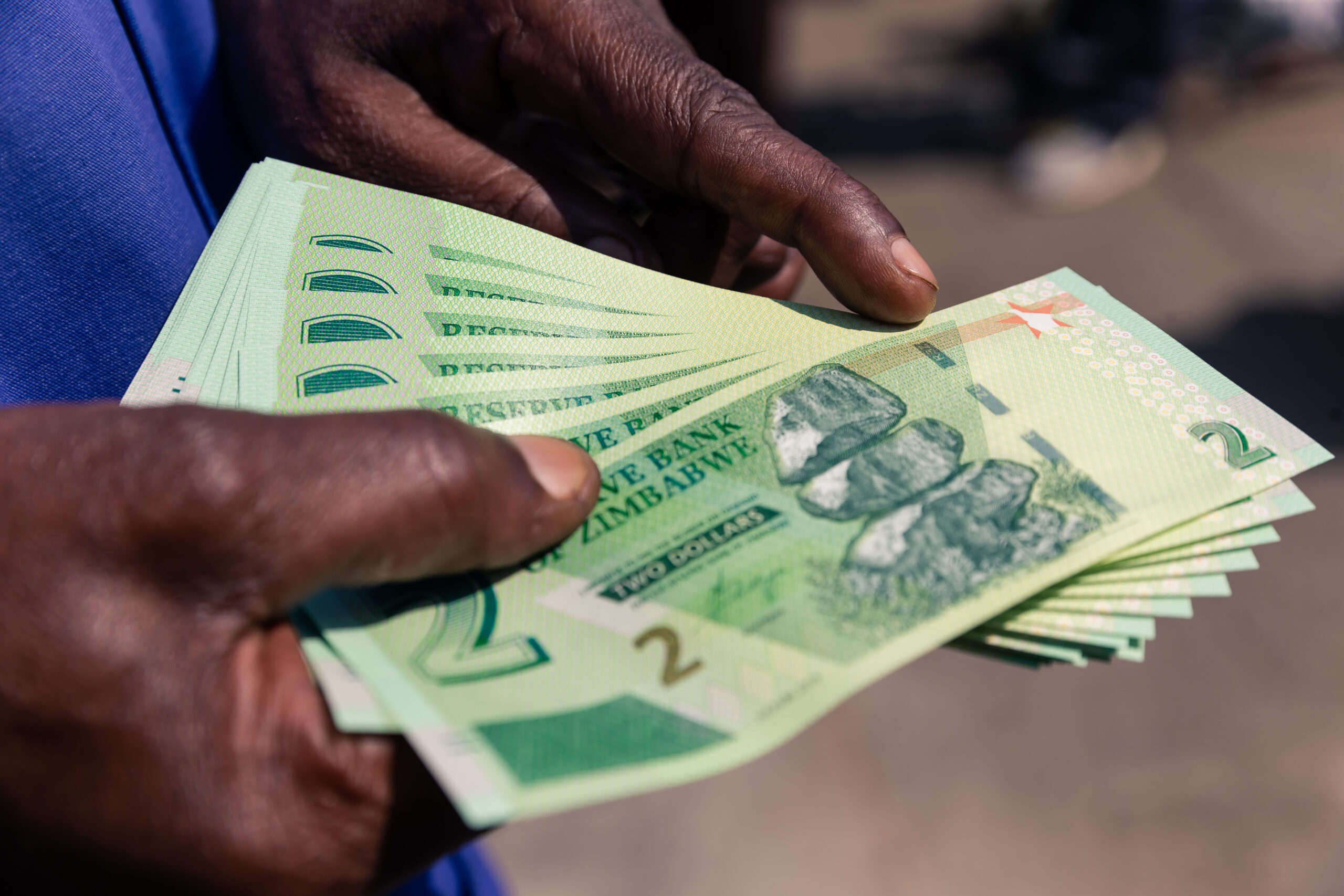Zimdollar gains against USD . . . as economic stabilisation measures bear fruit
THE Zimbabwe dollar exchange rate gained nine percent against the United States dollar on the Reserve Bank of Zimbabwe (RBZ) wholesale foreign currency auction for banks yesterday, the second time within a week, as local currency liquidity continues to tighten across the economy following a raft of economic stabilisation measures rolled out by the Government.
The cocktail of measures authorities started implementing since early May this year had already managed to halt the wild parallel market rate run, the major driver of local inflation, translating to local currency-denominated price stability in the formal market.
After yesterday’s wholesale auction, the exchange rate strengthened to $6 326.5877/US$1 from $6 926.57/US$1 at last week’s central bank wholesale auction where banks purchase forex for onward sale to their clients.
The Zimbabwe dollar exchange rate had gained for only the 15th time against the greenback on the official market since the inception of the auction post dollarisation, when it rose to $6 840 from $6 860 last week.
A 39 percent slide on 13 June was the Zimbabwe dollar’s worst decline on the auction system, but the alignment of key fundamentals due to recent policy pronouncements has set the local unit on a promisingly long road to sustained gains.
In a development reflecting the growing Zimbabwe dollar liquidity crunch, banks yesterday only managed to buy a third of the US$30 million the central bank had put up for sale on the wholesale auction.
A total of 12 bids were submitted by banks, with all 12 allotted at a cumulative value of US$10,107 million while the balance of just under US$20 million found no funded takers.
The Zimbabwe dollar is expected to post further gains going forward largely due to the prevailing tight liquidity situation in the market, as authorities enforce measures to anchor its stability.
The central bank’s wholesale forex auction has, within weeks, successfully mopped up the bulk of the excess liquidity from the market, which had been driving exchange rate volatility and driving Zimbabwe dollar prices.
A ready market for rightly priced foreign currency means formal businesses no longer see the economic benefit of buying forex on the parallel market at huge premiums, which has been exerting pressure on the exchange rate.
According to the central bank, excessive demand for the US dollar in Zimbabwe is driven by two major factors namely, the need to pay for imports and to preserve value.
The latest exchange rate development comes as the Treasury last Friday directed the Zimbabwe Revenue Authority to collect 50 percent of the foreign currency portion of corporate taxes in local currency to promote the use of the Zimbabwe dollar in the economy.
Where the law requires the tax liability to be paid in domestic currency, Treasury said taxpayers are compelled to settle such obligations exclusively in local currency.
In a reminder of that requirement this week, Secretary for Finance and Economic Development Mr George Guvamatanga said the “Government will not accept payment in USD or any other currency for the portion of corporate income tax due in local currency for the June tax QPD (Quarterly Payment Date).”
Demonstrating Government’s unflinching resolve to end the previously rampant exchange rate and price volatility in the market, which characterised the economy over the last three or so months, Mr Guvamatanga said penalties will be applied vigorously for all late payments of the June 2023 QPD tax obligations.
“However, to avoid any tax arbitrage by taxpayers, the 50 percent tax obligations payable in local currency will be converted at the wholesale auction rate prevailing on the date when the tax fell due,” he said.
This means no corporate will be able to exploit arbitrage arising from the strengthening of the exchange rate from $6 926 last week, which would reduce the amount of forex corporates need to liquidate to settle their tax liabilities.
The Government has since early May been rolling out a cocktail of measures to anchor the Zimbabwe dollar stability and promote its use in transactions across the economy.
Thus far, earlier interventions have included transferring all external payment obligations from the central bank to Treasury, payment of all duties in local currency, except for luxury goods and increasing the bank policy rate from 140 percent to 150 percent.
The central bank, on its part, refined the forex auction to a true Dutch Auction System with a fixed pre-bid envelope of US$5 million and the introduction of the wholesale auction to sell foreign currency to banks for sale to their clients.
Bankers Association of Zimbabwe president Mr Lawrence Nyazema said the local currency had been sucked out of the market in the past three to four weeks and this explained why banks were not able to buy much of the US dollars on the wholesale auction for banks.
“We have a situation where excess local currency was withdrawn from the market through prudent fiscal and monetary measures.
“Companies have to pay for their foreign currency taxes, which (Treasury) said have to be paid in local currency to (at least) 50 percent, meaning that the local currency is under heavy demand,” he said.
-herald











